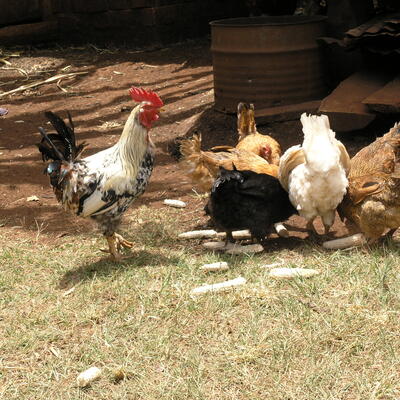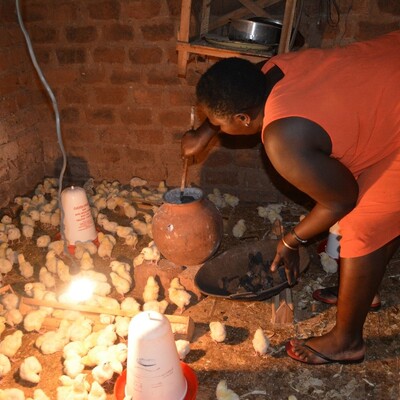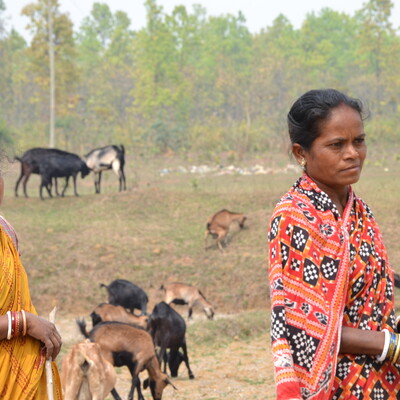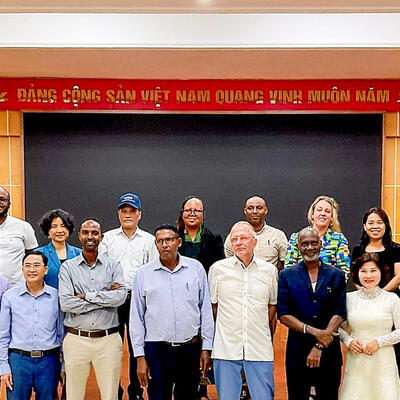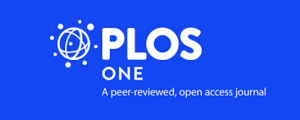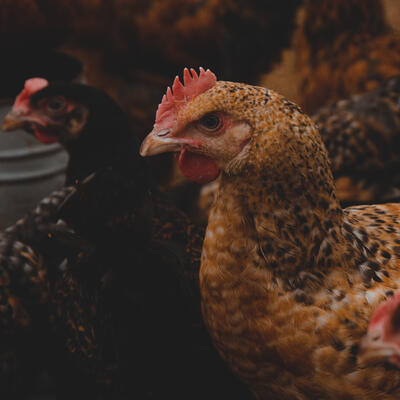

Kugwiza: Improving livelihoods of low-income farmers through widespread adoption of innovative livestock production practices in Burundi
Posted on
by
- Wandera Ojanji
- Alain Villard Bimenyimana
In the rolling hills of Gitega, Karusi, Ruyigi and Muramvya provinces, where the vibrant landscape is painted with lush greenery, a transformation is taking root. The Accelerated Innovation Delivery Initiative in the Great Lakes Region (AID-I GLR) project, renamed and known as 'Kugwiza' in Burundi, is set to improve livelihoods of low-income farmers through the widespread adoption of innovative agricultural practices, with a particular focus on livestock production. In particular, Kugwiza aims to introduce 18,000 Sasso chickens, an improved breed known for their efficient food conversion, to 3,600 deserving farmers in these provinces.
When a team from the General Directorate of Livestock in Burundi and ILRI visited beneficiary farmers from 16-20 January 2024 to evaluate the project reach, there was a palpable sense of gratitude among the beneficiaries. Candide Nshimirimana, a resident of Kibimba Hill in Gitega Province, expressed the sentiments of many, stating, ‘We greatly appreciate the Kugwiza project which brought us these chickens. Even if we have not yet noticed any benefit from this breeding, we can see that in a few months the breeding of these chickens will be more beneficial to us by providing for our needs and improving our living conditions.’
These Sasso hens have become more than just poultry; they represent a lifeline for these communities. Beneficiaries have undergone training, guided by local facilitators, covering various aspects of chicken rearing - from construction of chicken coops to health management, breeding cycles, and nutritional needs.
During the visit, the enthusiastic beneficiaries, armed with newfound knowledge, eagerly interacted with breeding research specialists, seeking to optimize the potential of their Sasso hens. Discussions ranged from production and breeding techniques to health precautions. The importance of collaboration with local veterinarians was emphasized, ensuring the well-being of the chickens.
While the journey of these chickens has not been without challenges, including late arrivals and environmental adjustments, the communities are resilient. Aline Nibigira from Masango Hill in Muramvya Province acknowledged the struggle with the high cost of balanced feed but expressed determination, stating, ‘The cost of feed is very high, and I sometimes choose to give them leftovers on the table.’
To address these challenges, development cooperatives in the target provinces plan to produce chicken feeds and provide affordable medication. The hope is that, with time and proper care, these chickens will not only meet the communities' nutritional needs but also become a source of income through the sale of eggs and spent hens.
Isidonie Niyonizigiye, an advisor to the director general of livestock, Burundi reinforced the importance of disease prevention through environmental and personal hygiene. She reminded the beneficiaries that, like any living beings, chickens require meticulous care, including proper housing, ventilation, light, and protection from predators.
In the broader scope, discussions extended to artificial insemination, fodder production, and east coast fever immunization , showcasing a holistic approach to sustainable agriculture. Under the vigilant supervision of facilitators, these activities aim to create a comprehensive and thriving ecosystem that not only supports livelihoods but also contributes to the larger tapestry of sustainable agricultural development in the region.
As the Kugwiza project unfolds, it paints a hopeful picture of transformation, where livestock becomes not just a source of sustenance but a catalyst for positive change in the lives of those who tend to it. The hills resonate with the clucking of Sasso hens, echoing a promising future for these communities.
Launched in May 2023, the two-year AID-I GLR project is a multiple-stakeholder initiative funded by the United States Agency for International Development’s Feed the Future program and led by the International Institute of Tropical Agriculture. Kugwiza Project seeks to boost agriculture and enhance food and nutrition security in Burundi through the rapid large-scale adoption of proven technologies and innovations developed mainly by ILRI and other CGIAR centres.
The project collaborates with scaling partners operating in Burundi led by World Vision Burundi and the Confederation of Agricultural Producers Associations for Development (CAPAD), development organizations, farmer cooperatives, and individual pilot farmers to deliver improved agricultural technologies and innovations to farming households, henceforth support smallholder farmers increase production.
You may also like

ILRI News
ILRI trains regional livestock officers in Ghana on the interface for Marek’s Disease Economic Impact and Trade-off (i-MaDE-IT).

ILRI News
High prevalence of highly pathogenic avian influenza A virus found in Vietnam’s live bird markets
Related Publications

Analysis of antibiotic use and access to drugs among poultry farmers in Kenya
- Muloi, Dishon M.
- Kasudi, Mitchelle R.
- Murungi, Maurice K.
- Ibayi, Eugine L.
- Kahariri, S.
- Karimi, C.
- Korir, Max
- Muasa, B.
- Mwololo, D.
- Ndanyi, R.
- Ndungi, R.
- Njiru, J.
- Omani, R.
- Owada, R.
- Omulo, S.
- Azegele, A.
- Fèvre, Eric M.
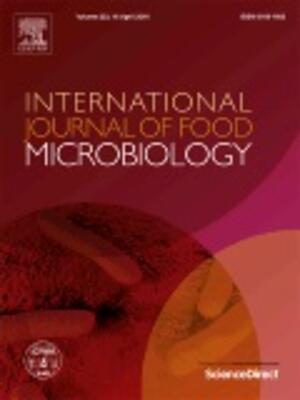
Cost-effectiveness of interventions toward improving microbial food safety of chicken meat along supply chains in Burkina Faso and Ethiopia
- Ssemanda, J.N.
- Besten, H.M.W. den
- Dione, Michel M.
- Amenu, Kebede
- Knight-Jones, Theodore J.D.
- Zwietering, M.H.
- Wagenberg, C.P.A. van
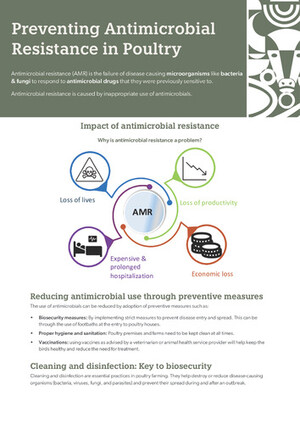
Preventing antimicrobial resistance in poultry
- Directorate of Veterinary Services, Kenya
- International Livestock Research Institute

Flexible assessment of biosecurity in small- and medium scale poultry farms in low and middle income countries
- Nielsen, S.S.
- Kemunto, Naomi P.
- Muloi, Dishon M.
- Bojesen, A.M.
- Knight-Jones, Theodore J.D.
- Ayebare, Dreck
- Dione, Michel M.
- Ibayi, Eugine L.
- Poulsen, L.L.
- Moodley, Arshnee

Systematic review and meta-analysis on prevalence and antimicrobial resistance patterns of important foodborne pathogens isolated from retail chicken meat and associated environments in India
- Ayoub, H.
- Kumar, M.S.
- Dubal, Z.B.
- Bhilegaonkar, K.N.
- Hung Nguyen-Viet
- Grace, Delia
- Thapliyal, S.
- Sanjumon, E.S.
- Sneha, E.N.P.
- Premkumar, D.
- Rajendran, V.K.O.
- Deka, Ram Pratim
Related Projects
